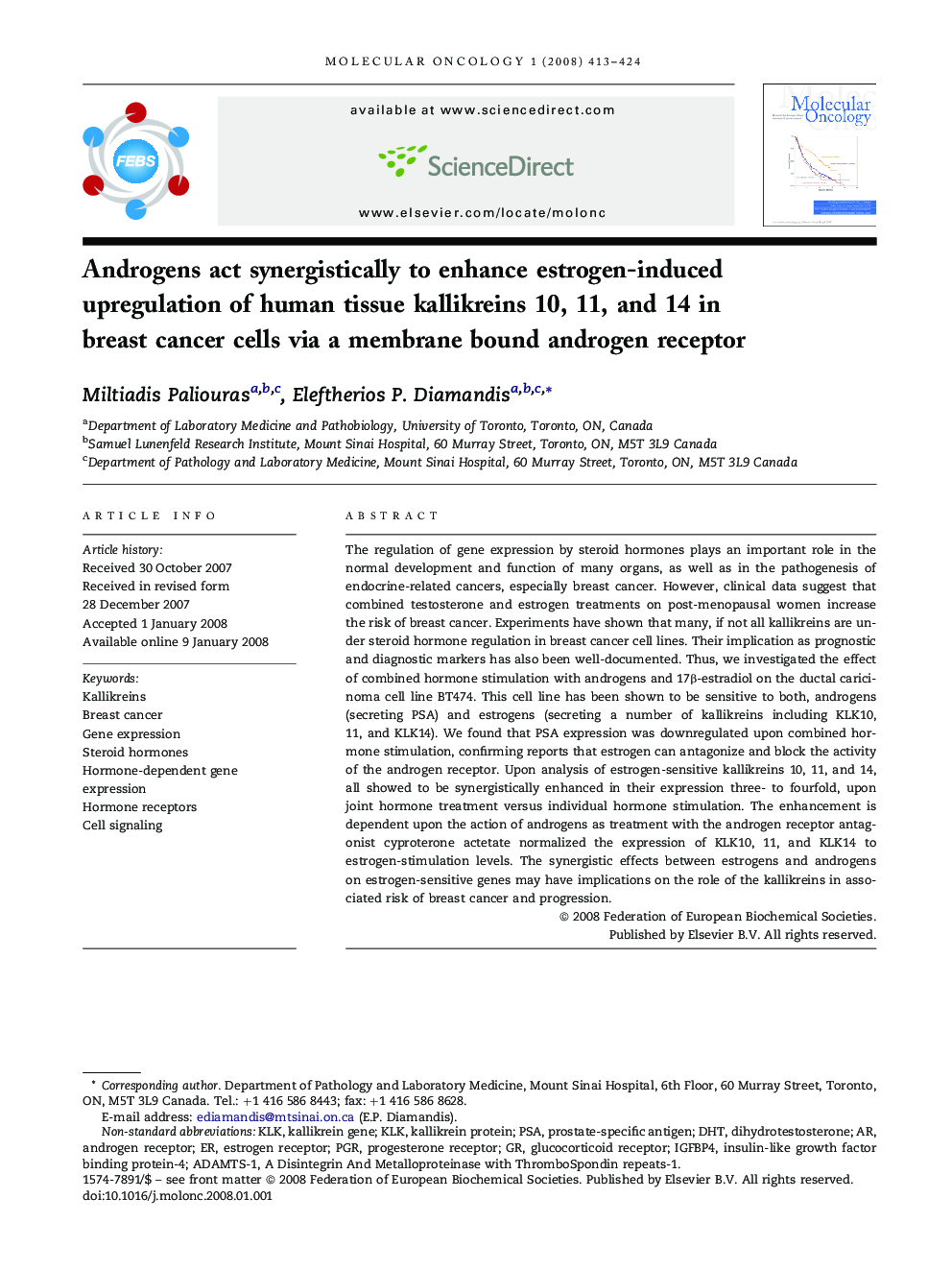| Article ID | Journal | Published Year | Pages | File Type |
|---|---|---|---|---|
| 2146088 | Molecular Oncology | 2008 | 12 Pages |
The regulation of gene expression by steroid hormones plays an important role in the normal development and function of many organs, as well as in the pathogenesis of endocrine-related cancers, especially breast cancer. However, clinical data suggest that combined testosterone and estrogen treatments on post-menopausal women increase the risk of breast cancer. Experiments have shown that many, if not all kallikreins are under steroid hormone regulation in breast cancer cell lines. Their implication as prognostic and diagnostic markers has also been well-documented. Thus, we investigated the effect of combined hormone stimulation with androgens and 17β-estradiol on the ductal caricinoma cell line BT474. This cell line has been shown to be sensitive to both, androgens (secreting PSA) and estrogens (secreting a number of kallikreins including KLK10, 11, and KLK14). We found that PSA expression was downregulated upon combined hormone stimulation, confirming reports that estrogen can antagonize and block the activity of the androgen receptor. Upon analysis of estrogen-sensitive kallikreins 10, 11, and 14, all showed to be synergistically enhanced in their expression three- to fourfold, upon joint hormone treatment versus individual hormone stimulation. The enhancement is dependent upon the action of androgens as treatment with the androgen receptor antagonist cyproterone actetate normalized the expression of KLK10, 11, and KLK14 to estrogen-stimulation levels. The synergistic effects between estrogens and androgens on estrogen-sensitive genes may have implications on the role of the kallikreins in associated risk of breast cancer and progression.
